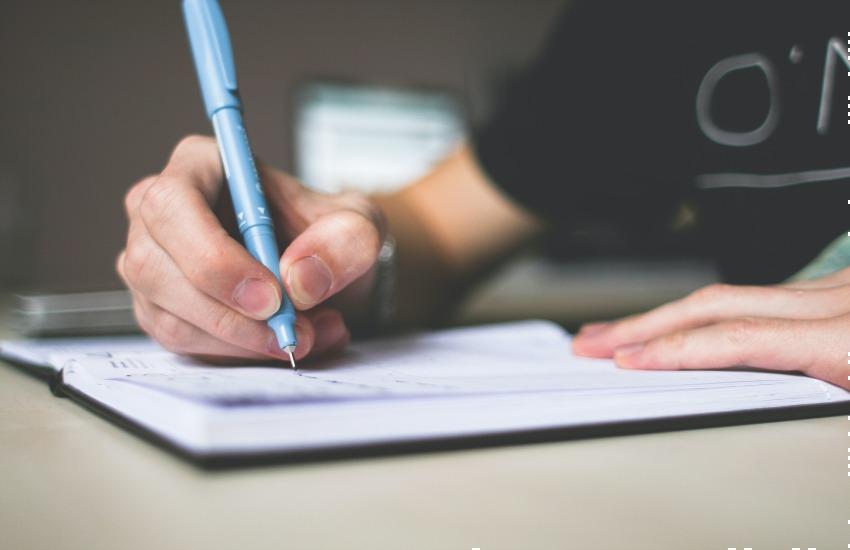6 Great Ways to Boost Your Productivity
Published: Jun 09, 2023

As it relates to your career, productivity can best be described as the measure of your output. Depending on your job this could mean many things, from the number of software updates you create, all the way to how many homework assignments you can grade in a certain amount of time. When we’re productive at work it keeps us feeling motivated and fulfilled, which can in turn lead to an improved workplace environment. Here are some strategies to help you increase your productivity.
Identify Peak Productivity
The first thing you should do is figure out when you’re most productive. Some people start off on their A game bright and early and lose steam later on in the afternoon, while others require some time to warm up before they hit their stride. Once you’ve determined when you’re most productive, plan your schedule accordingly. The remaining tactics on this list rely heavily upon identifying your peak productivity and may be less effective during other times, so keep that in mind as we continue.
Eliminate Distractions
From televisions to smart phones, all the way to chatty coworkers and even cats, life is full of distractions, both self-imposed and otherwise. If you’re looking to level up your productivity, it’s incredibly important to identify and limit any distractions. The best way to do this is to remove all potential distractions from your workspace. If you require additional focus, a closed door can be a great thing, although that might not always be possible.
If you have a desk, turn your smart phone off and leave it in a drawer, setting aside specific times during the day to check your messages. When dealing with a talkative coworker, be polite and suggest catching up during a designated break period. Building focus is similar to developing any other type of skill. At first it might be easy to succumb to distractions, but after some time you’ll become all but impervious to the temptation to engage them.
Set Smaller Goals
Another great way to increase your productivity is by staying motivated. Each day, set small, attainable goals and aim to achieve them. An easy way to track goals is by implementing project management platforms such as Nifty or Trello. Of course, you could also break out your trusty old steno pad and jot down your goals the old-fashioned way. Either way, find a strategy that works best for you.
Let’s say you’ve been assigned a major project that must be completed within a month’s time. Instead of looking at the project as one giant goal, break it down into smaller, more manageable goals. For example, if the first step is sending an email to another team member, consider that a goal. The benefit of setting small goals is that you’ll build momentum, and as you achieve each goal you’ll perpetuate motivation.
Prioritize the Most Difficult Tasks
If you’ve got a list of tasks that need to be completed, it’s best to prioritize the most difficult ones whenever possible. Now, “difficult” can mean many different things—certain tasks might require a lot of time to complete, while others might be intellectually challenging and complex in nature. Whichever the case may be, going after the more difficult tasks first will allow you to harness your peak productivity. With the most difficult task out of the way, you should have plenty of energy left to pick off the easy ones.
Block Out Time
Now that you’ve identified your peak productivity, eliminated all distractions, and set some nice goals for yourself, start planning out your day. For example, set aside 15 minutes to check your email, then block out two hours for that challenging task that you just prioritized. By doing this, you’re being deliberate about how you’re spending your time and you’ll remain focused on each task.
Everyone’s schedule will look different, so it might take some trial and error before you find what works best for you. Many project management platforms will let you add notes where you can include the name of the task, along with how much time you plan to spend on it. If you want to go the old school route, you could always go back to that trusty steno pad. People still use those, right?
Take Breaks
This might seem paradoxical, but taking breaks can contribute to increased productivity. It’s important to allow yourself time to step away from your work so you can recharge your batteries. If you’re getting stressed while working on a project, your productivity will take a nose dive, which will lead to a cycle of frustration and second guessing.
Most typically, you’ll have designated break periods such as a lunch hour; however, you can also take smaller breaks throughout the day when necessary. For example, taking a quick 5-minute break during a task will allow you to gather your thoughts and readjust your perspective. During these small breaks, you can organize your desk, or stretch your legs and get a glass of water. This might seem like a simple concept, but if you’re deep into a major project it can actually be difficult to remember to step away.
Increasing your productivity at work will not only bring upon a renewed sense of job satisfaction, but it can also pave the way toward a number of other benefits including a salary increase or promotion. When working on increasing your productivity, it’s important to also keep an eye on the quality of your work. Start slow, be methodical, and in time you’ll be a highly productive member of the team.
